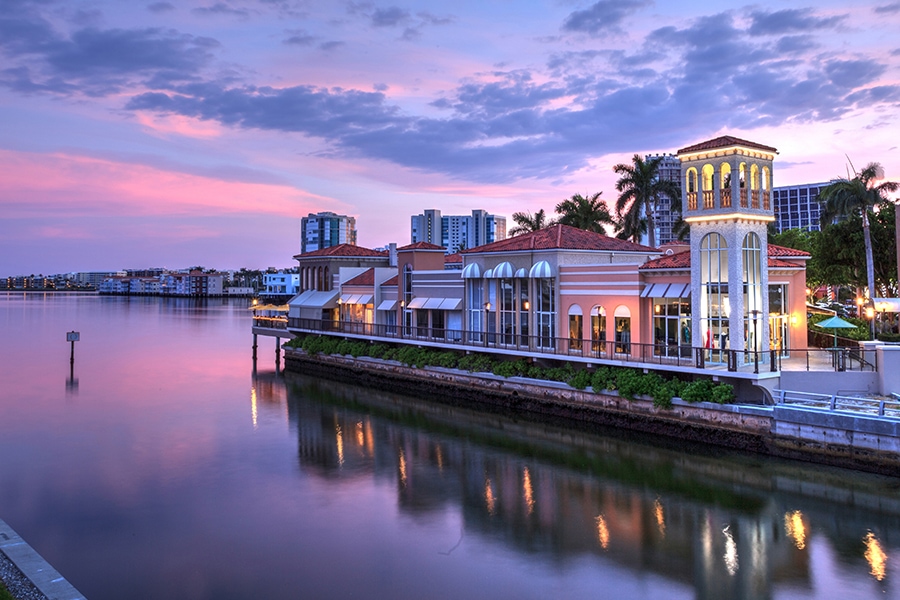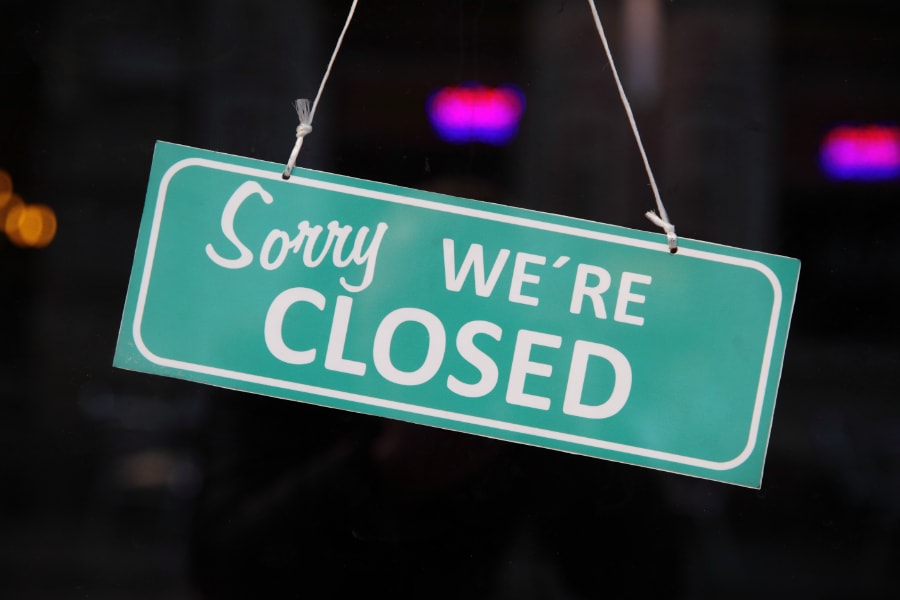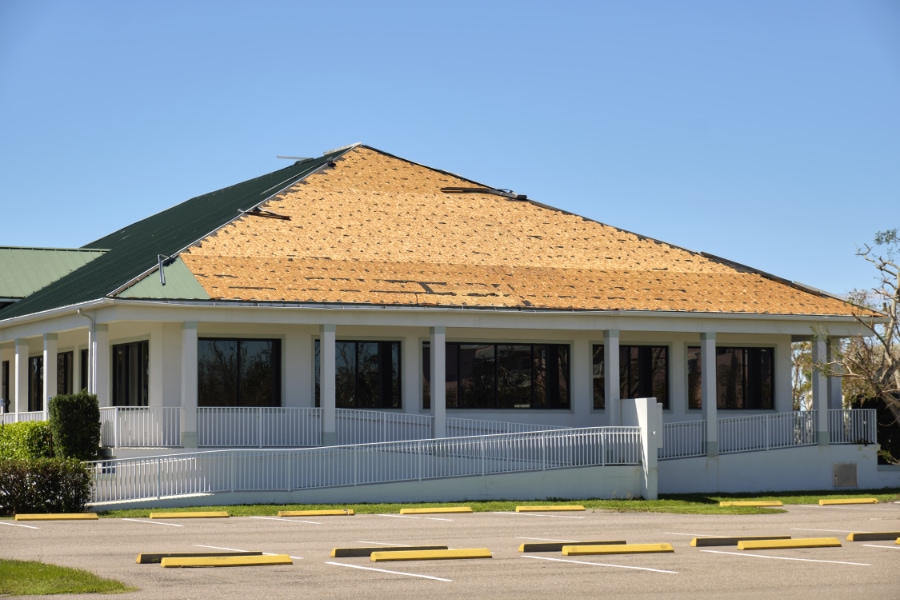Florida Hurricane Prep for Businesses
As a current or potential business owner in Southwest Florida, you don’t just need to plan for your family and home in the event of a hurricane. You have to ensure that your business is protected as well. Hurricane prep for Florida businesses is crucial to securing your investment and livelihood during such a high stress time. It can be confusing to know where to start or exactly what’s expected of you as a business owner when hurricane season begins. Luckily, you’ve discovered a passionate team of experts and Florida natives ready to walk you through it.
The team at Naples Relocation Experts has been guiding our community through hurricane preparedness and disaster relief for years. After all, we are family-focused homeowners and business owners ourselves with a passion for helping our city flourish. We’ve endured storms like Hurricane Charley, Wilma, Irma, and Ian and come out stronger on the other side. We encourage business owners to benefit from our knowledge, resources, and experience to safely navigate your business through any storm.
Keep reading to learn more about essential Florida hurricane prep for businesses.
Determine your business’s level of risk.

The amount of risk to your business from hurricanes depends on a variety of factors: distance from the coast, elevation level, the building’s ability to withstand high winds, and more. To help determine your risk level, you should:
- Perform a Property Inspection. Hire a professional to perform an inspection of your business to determine its ability to withstand a hurricane. Keep in mind that buildings built after 2002 generally include features that make them more resilient to hurricanes.
- Identify Your Business’s Evacuation Zone. In the days or hours leading up to a hurricane, local officials will issue evacuation orders based on what zone you’re in. You can find your zone using the Florida Division of Emergency Management’s Know Your Zone map.
- Determine If Your Business Is in a Flood Zone. FEMA’s Flood Maps feature shares your risk of water damage based on your region and elevation.
- Review Previous Hurricane Damage to Your Area. Historical Hurricane Tracks provides a history of storm events that could help you determine your risk and learn how to prepare.
Ensure that your business is covered with flood insurance.
When operating a business in Florida, it’s essential that your business is protected by flood insurance. Businesses with mortgages from government-backed lenders that are located in high-risk flood areas are required by law to have flood insurance. Despite its necessity for Florida businesses, most common insurance policies do not cover flooding. Check your policy to determine if flood damage is included, and speak with your provider to add additional coverage for flooding if needed.

If your private insurer does not offer flood insurance, you can gain coverage through the National Flood Insurance Program (NFIP) managed by FEMA. According to NFIP, the average flood insurance policy costs around $700 annually.
Communicate your hurricane preparedness plan to essential personnel in advance.
The time right before a hurricane is often stressful and chaotic. Employees have their own homes and families to worry about, which can leave little time for last minute organization. The best strategy is to develop your plan for Florida hurricane prep for businesses before hurricane season begins. Create a hurricane preparedness checklist, assign responsibilities, and plan out evacuation routes for staff if necessary. Communicate with essential employees to ensure everyone is aware of their roles in the event of a hurricane. You should also contact any vendors or contractors to review post-storm expectations of services.
Make sure to update your hurricane preparedness plan regularly to accommodate changes in your business, location, or staff. You should also create an emergency call list with 24-hour cell phone numbers of all relevant staff members.
Have a property protection plan in place.
To safeguard your business against hurricane damage, it’s crucial that you have a solid plan in place to protect your business’s property. Your property protection plan should include:
- Regular Roof Inspections & Maintenance: Have your roof regularly inspected, evaluate its ability to withstand high winds, and perform routine maintenance and repairs as needed.
- Install Plywood or Storm Shutters: Before a hurricane makes landfall, you should put up plywood or storm shutters over all of the windows on your business’s property.
- Secure Heavy Furniture & Electronics: Prior to a hurricane, secure or strap down any heavy furniture or electronics to ensure they don’t move and cause further damage.
- Utilize Sand Bags: Sand bags can be placed inside and outside of doors to potentially prevent rising flood waters from entering your property.
- Protect Important Documents: Important business documents (tax records, legal/financial documents, etc.) should be collected and stored in a waterproof container that can be easily removed to a safe location. Make physical and/or digital copies as backups.
- Take Photos of Property & Inventory: Prior to a storm, take a workplace inventory and photograph your business to establish a record of physical assets. Photo evidence and documentation will help adjusters or federal relief agencies evaluate the damage for more accurate appraisals.
- Establish an Alternative Storage Site: If your business is located in a flood zone, designate an alternate location at a higher elevation where equipment, files, and vehicles can be moved prior to the storm.
- Test Emergency Generators: If your business has emergency backup generators, make sure to test them and ensure there is enough additional fuel.
- Unplug All Electrical Equipment: Before the hurricane, unplug all of your electrical equipment, including computers, printers, phones, refrigerators, and TVs. If possible, cover equipment with heavy plastic and secure it.
Close your business early when possible / necessary.

Check the National Hurricane Center website frequently for accurate updates on the hurricane’s path and timeline. Plan to close your business as early as possible and do a final walkthrough to ensure all safety precautions have been taken. It’s important to provide yourself and your staff with plenty of time to evacuate or to prepare to shelter in place. When it comes to hurricanes, it’s better to be safe than sorry.
Have a plan for when and how to return to work.
It’s very important to inspect the building’s infrastructure to confirm it’s safe before asking employees to return to work. If your business sustained extensive damage, it’s best to hire professionals to conduct any cleanup. If you and your staff are handling cleanup yourselves, make sure to wear the appropriate protective gear, steer clear of power lines, and avoid stepping in standing water. Keep in mind that the most common cause of employee injuries is a slip, trip, or fall, so exercise every precaution during inspection and cleanup. Before resuming business operations, take photos and records of any damage, keep all receipts for claims, and report everything promptly.
When necessary, take advantage of any disaster assistance that’s available after a hurricane.

If your business experienced losses in revenue, was forced to close indefinitely, or sustained damage not covered by insurance, you might be eligible for disaster relief or loans. Some common resources are:
- FEMA: The Federal Emergency Management Agency (FEMA) provides federal assistance to eligible individuals (and businesses) affected by declared disasters. After a hurricane, check FEMA’s Disaster Assistance website for opportunities to inquire about eligibility and apply for assistance.
- SBA: The Small Business Administration (SBA) offers low interest disaster loan assistance to businesses and nonprofit organizations located in regions affected by declared disasters. Your business must be located in a declared disaster area to be eligible for assistance.
- Florida DEO: If the hurricane caused you or your staff to lose their jobs, the Florida Department of Economic Opportunity (DEO) may offer Disaster Unemployment Assistance (DUA). DUA is available to businesses and residents whose employment or self-employment was lost or interrupted as a direct result of a hurricane.
- SBDC: Florida Small Business Development Center (SBDC) disaster specialists are available to provide confidential, no-cost consulting to help affected businesses prepare disaster loan applications and with other post-disaster challenges. Disaster specialists will work alongside SBA representatives to provide information about resources available and assist businesses in completing disaster loan applications.
Have an expert in your corner to answer questions and provide help.
If you’re new to the Southwest Florida area and want to know what hurricane prep for businesses involves, it’s important to find an expert that’s familiar with the area to guide you. At Naples Relocation Experts, we go beyond basic real estate services and use our local expertise to help business owners like you fully acclimate to our community. Contact us today to speak with a member of our team and better understand what to expect as a business owner. We offer our wealth of knowledge and access to our network of other business owners in your industry to ensure you feel empowered to thrive in Naples.
Looking for more resources on hurricane preparedness? Check out our Florida Hurricane Preparedness Guide for more information on navigating your home and family through hurricane season. If you’re interested in learning more about how Hurricane Ian impacted our area, we also have an article detailing the Naples real estate market post-Ian.
For additional assistance on hurricane prep for businesses or business ownership in Naples in general, please call us at (239) 269-7685 to speak with a Naples relocation expert.
- Naples Property Taxes - February 10, 2024
- 2024 Real Estate Market Predictions for Investors - January 20, 2024
- Popular Naples Architecture - January 10, 2024

